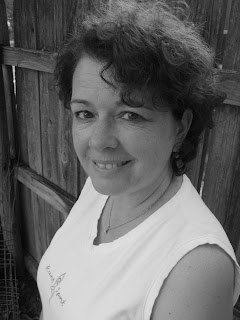As long as you think Sodom and Gomorrah was incinerated because of certain sexual proclivities you don’t happen to be guilty of, you can safely skim past that story, believing it has nothing to do with you. Until the day your pastor tells you straight out that the judgment wasn’t about sexual immorality, and you read in Ezekiel 16:
The guilt of Sodom: she and her daughters had arrogance, abundant food, and careless ease, but they didn’t grasp the hand of the needy.
No sailing past these words in your self-righteous Hovercraft. Well, you could, as I did. For a while. Especially the first one. Arrogance. That’s the Pharisees, right? Or the people building the Tower of Babel. King Nebuchadnezzar. Pharoah. There’s nothing of them in me.
Then I read a chapter in "The Oldest Living Confederate Widow Tells All" by Alan Gurganus in which the pride of the South is reduced to ashes in Sherman’s wake. The lady dressed in white silk, her charm, her Latin, her music, her European antiques, her china and silver, her garden parties, her charity work. All is burned, even herself, as she stands too close, in denial that she in all her glory would come to such an end. Only the slaves escape.
She had no idea of the vanity that all her servants secretly made fun of. She was blind. Until it was all burned up and, “for the first time, she began to live her life from the inside out.” Reduced to crawling on the ground, digging for roots from the slaves’ garden, all that had made her beautiful and superior was gone. But the slaves had known all along it was a sham.
The slaves’ cutting assessment of her and her incredible self-delusion made me nervous. I could see a bit of myself in her, a pride in my love for books, for knowledge and beauty, for my way of life. All that she had was given to her; it was unearned, but she, like most in the privileged class, saw it as a sign of God’s blessing, favor. Could I be blind, too?
God has graciously used the Ezekiel passage, the above-mentioned book, two other books, my pastor’s sermons from Hosea, and life itself to wake me up recently. My thoughts aren’t well-organized yet, but bear with me. More later.
Subscribe to:
Post Comments (Atom)


2 comments:
Timely post, Terry... well, for me, as an Orthodox Christian, since Lent begins March 10. February 17 was the Sunday of the Publican and the Pharisee... very much about the things you say here. The Old Testament is full of good stuff about living genuine, fully human lives. Thanks for sharing this! Oh, and way to go, setting up the blog feed. I'm in.
A well written call to self-examination and repentance. Your writing connects well with a book of Lenten meditations I am using during this season called "The Cross-Shattered Christ." I am learning that the shattering of my pride and prejudice is only accomplished through the power of the
Cross. Thank you for your boldness.
Love you.
Post a Comment